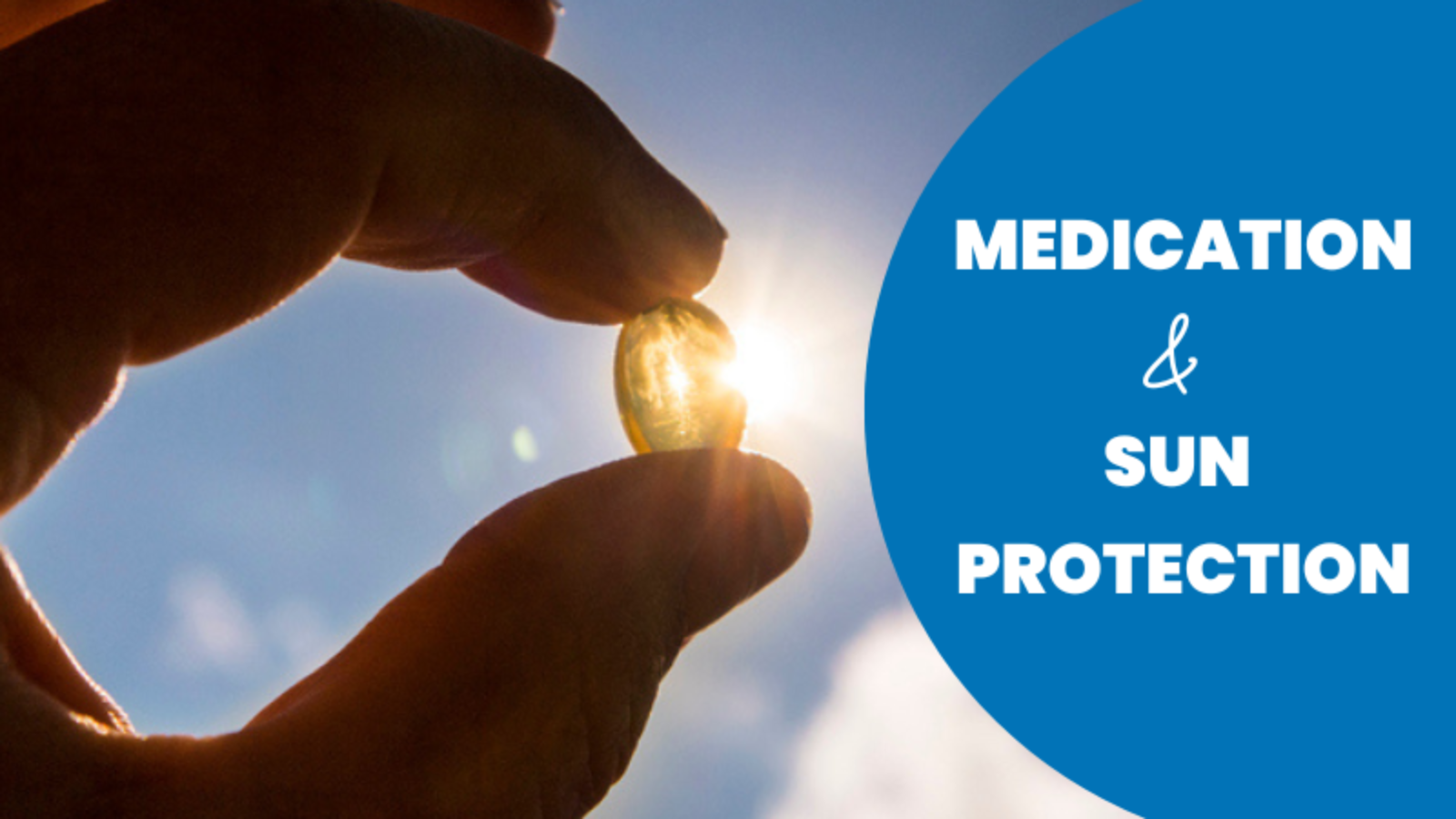
- Blog /
- May 31, 2023
Medication and Sun Protection
Most sun damage can be avoided by staying in the shade, applying sunscreen regularly, and favoring loose and light clothing. However, when certain medicines, your skin can at a much higher risk of damage.
Some medicines contain ingredients that may cause photosensitivity, making the skin sensitive to sunlight and an easy target for sunburn-like symptoms, rashes and other side effects. It can be triggered by products applied to the skin or medicines taken by mouth or injected. Photosensitivity can also occur after exposure to either natural sunlight or artificial light, such as a tanning booth. These symptoms may be triggered by a wide range of medicine, such as certain acne medications, oral contraceptives, anti-arrhytmic drugs, antidepressants, and antifungals.
If you have concerns about developing a reaction, try to reduce your risk by:
- If possible, applying or using your medicine in the evening for maximum protection.
- Wearing high-quality sunglasses and broad-brimmed hats to limit sun exposure.
- Using a broad sunscreen as directed, re-applying regularly even if the bottle claims water resistance.
- Using broad-spectrum sunscreens that provide protection against ultraviolet A (UVA) and ultraviolet B (UVB) radiation, with an SPF value of 30 or higher.
Naturally, not all users of these drugs develop symptoms, and when they do, the intensity depends on the dosage of the drug, the intensity of UV radiation, and the duration of exposure. If you have questions about your medications and the possibility of a photosensitivity, contact your health-care professional or pharmacists. Taking a few precautions can help limit your risk of photosensitivity and create peace of mind while still enjoying the sun.
Source: FDA
